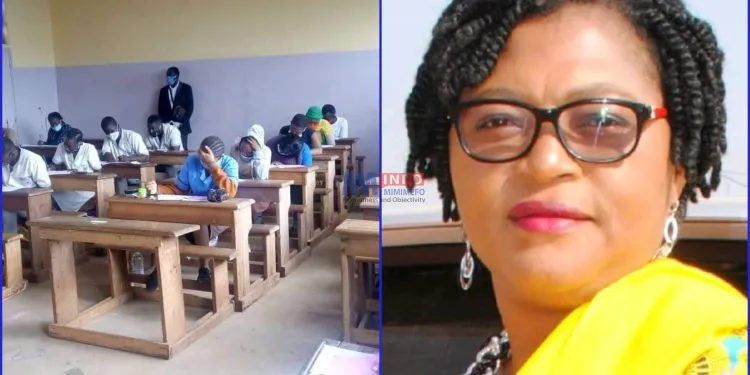Candidates for the General Certificate of Education (GCE) will face increased scrutiny as part of efforts to reduce exam malpractice. The GCE Board has announced the installation of surveillance cameras in several examination centres, particularly in private schools, to combat cheating.
In addition to the cameras, the board has introduced several other measures. The length of time invigilators have to keep the exam scripts has been significantly shortened, and the student-to-invigilator ratio has been adjusted from 35 students per invigilator to 30. Moreover, the number of candidates per superintendent has been decreased from 500 to 300.
These steps, according to the board, are aimed at curbing cheating. The practical phase of the GCE exams begins on Tuesday, May 28. This year, over 197,000 candidates will participate, an increase from last year’s 182,242 candidates.
Benadet Ndi, Head of the Transition of the GCE Board, noted that the number of candidates has increased by 14,060 this year. The exams will be conducted in centres and accommodation centres nationwide.
Madam Mboke, the principal of GHS Buea, an accommodation center, confirmed to CRTV Southwest on Monday, May 27, that her school is ready for the exams. However, she mentioned a water supply issue and advised candidates to bring their own drinking water since the school’s taps are not functioning.
Results for the exams are expected to be released earlier than last year. Benardet Ndi, head of the GCE Board’s transitional management team, stated on Cameroon Calling on Sunday that significant improvements have been made, including the use of an automated marking machine for multiple-choice questions.
Since the onset of the Anglophone conflict, GCE exam marking has been centralised in Buea. Previously, marking was conducted in both Buea and Bamenda. Due to the ongoing conflict, the board remains uncertain about resuming marking in Bamenda.



